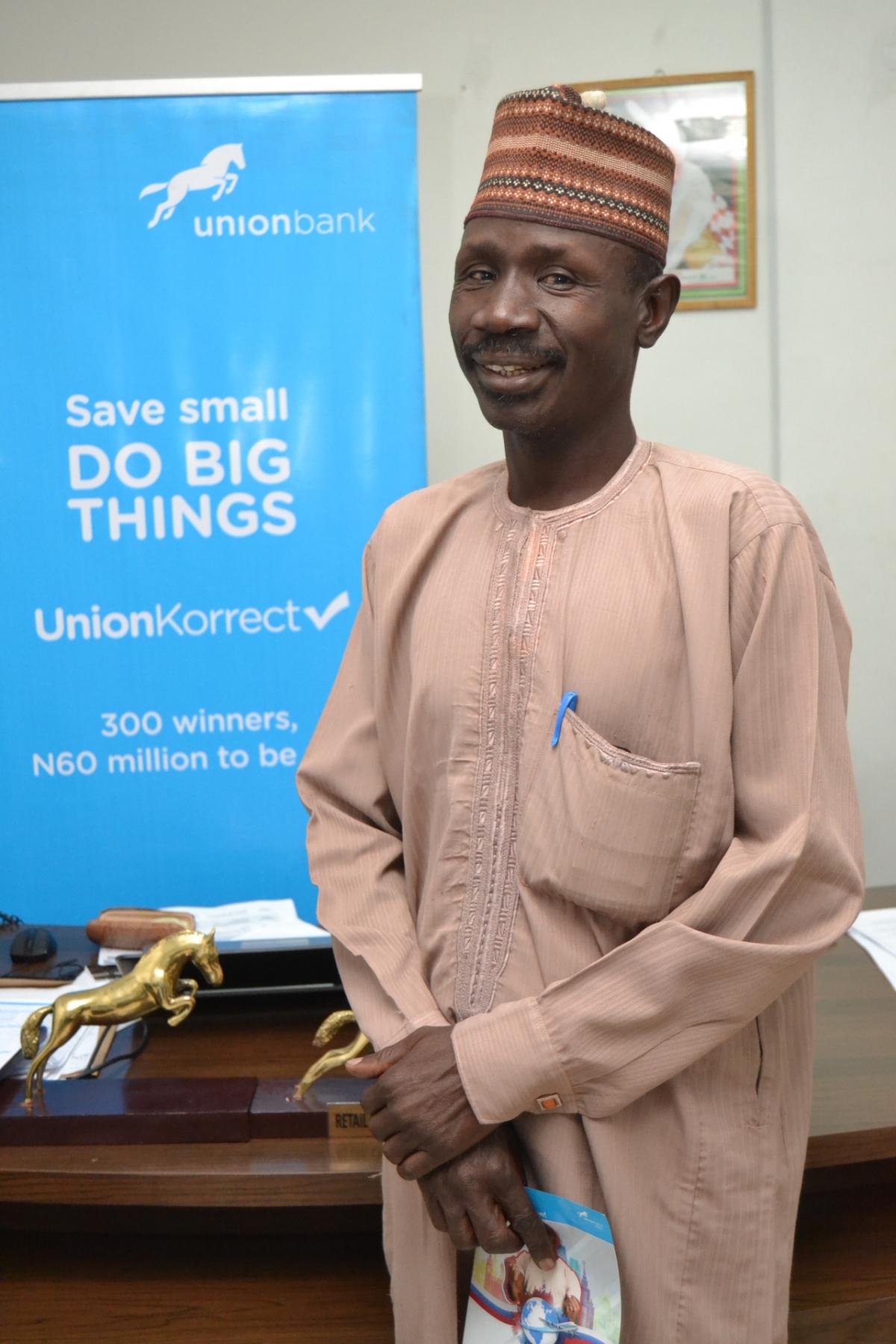Bringing Banking to Low Income Communities in Northern Nigeria
Union Bank of Nigeria joins Business Call to Action by committing to provide access to financial services for 30,000 low income individuals in the country’s north

Union Bank of Nigeria (Union Bank) has joined Business Call to Action (BCtA) with a pledge to provide access to financial services for at least 30,000 people from low income communities in 11 states across northern Nigeria by 2020, where currently more than half the population are unbanked.
Launched in 2008, BCtA aims to accelerate progress towards the Sustainable Development Goals (SDGs) by challenging companies to develop inclusive business models that engage people with less than USD 10 per day in purchasing power (in 2015 dollars) as consumers, producers, suppliers and distributors. It is supported by several international organizations and hosted by the United Nations Development Programme (UNDP).
Currently, 42 percent of Nigerian adults, or 96 million people, are excluded from the financial system as they do not have bank accounts or access to any other formal or informal financial services. In northern Nigeria, these figures are even higher (estimated at 62 percent and 70 percent in the North East and North West respectively). Due to deeply ingrained cultural norms across the North, women are less likely to use financial services than men (47 percent of adult women are financially excluded compared to 37 percent of adult men).
In addition, income earning capacity in the predominantly agrarian northern Nigeria is significantly lower than the rest of the country, averaging between US$82-98 monthly for employed individuals.
To address this, Union Bank has adapted its standard 2-year savings account, UnionKorrect, offering a tailored version called UnionKorrectDaiDai. This service reduces entry barriers by waiving the requirement for formal identification documents, such as having proof of fixed address, to open an account. In addition, UnionKorrectDaiDai customers are only required to save a minimum of US$3 monthly, compared to $16 monthly with the standard UnionKorrect account. Finally, taking into consideration that communities in this region are predominantly Muslim, financial products have been tilted away from payment of interest towards provision of incentives to savers. As a measure of its success, since its launch in February 2016, over 30,000 UnionKorrectDaiDai accounts have already been opened by low income customers.
While providing Nigerians with an opportunity to safely bank their money, the initiative also generates profits for the bank, making it a win-win innovation. By accessing funds over a two-year period from low income earners, UnionKorrectDaiDai generates income for the Bank as they are invested and repaid as capital and incentives.
“UnionKorrectDaiDai has proven to be a functional savings platform for the bank’s customers across northern Nigeria while ensuring our operations remain profitable within the operational states. As a Bank, we will continue to develop sustainable products and services that address poverty and financial inclusion in line with our commitment to support the communities within which we operate,” said Union Bank CEO, Emeka Emuwa.
At the same time, the Bank will partner with telecom companies in Nigeria to leverage a country-wide network of agents to reach out to low income individuals and encourage them to open accounts using mobile phones. Union Bank will also partner with Paga, a merchant-based fintech company (and fellow BCtA member) which has the country’s largest network of financial access points in Nigeria. Through its 10,500 local agents, Union Bank will be able to reach communities previously out of reach of their financial services. Through these networks, Union Bank will extend access to finance to low income earners through ‘wallet accounts’, which do not require the rigorous regulatory documentation required for standard accounts.
“Union Bank of Nigeria’s approach to tackling the challenge of access to financial services in northern Nigeria shows both innovation and creativity, enabling it to meet the specific needs of communities living in this area, while maintaining company profits,” said BCtA Programme Manager Paula Pelaez.
For further information:
BCtA: Aimee Brown at aimee.brown@undp.org
BctA membership does not constitute a partnership with its funding and programme partners, UNDP or any UN agency.
About Business Call to Action (BCtA): Launched at the United Nations in 2008, BCtA aims to accelerate progress towards the Sustainable Development Goals (SDGs) by challenging companies to develop inclusive business models that offer the potential for both commercial success and development impact. BCtA is a unique multilateral alliance between key donor governments including the Dutch Ministry of Foreign Affairs, Swedish International Development Cooperation Agency (Sida), Swiss Agency for Development and Cooperation, UK Department for International Development, US Agency for International Development, and the Ministry of Foreign Affairs of the Government of Finland, and the United Nations Development Programme — which hosts the secretariat. For more information, please visit www.businesscalltoaction.org or on Twitter at @BCtAInitiative.
About Union Bank of Nigeria: Union Bank of Nigeria (“Union Bank”) is one of Nigeria’s longest-standing financial institutions, offering a portfolio of banking services to individuals, small and medium scale businesses, commercial and large corporate clients. With a robust geographical network comprising more than 300 branches and over 760 ATMs spread across Nigeria, it offers a range of financial services to the mass market, while also creating niche opportunities for affluent, high net worth individuals and SMEs.
